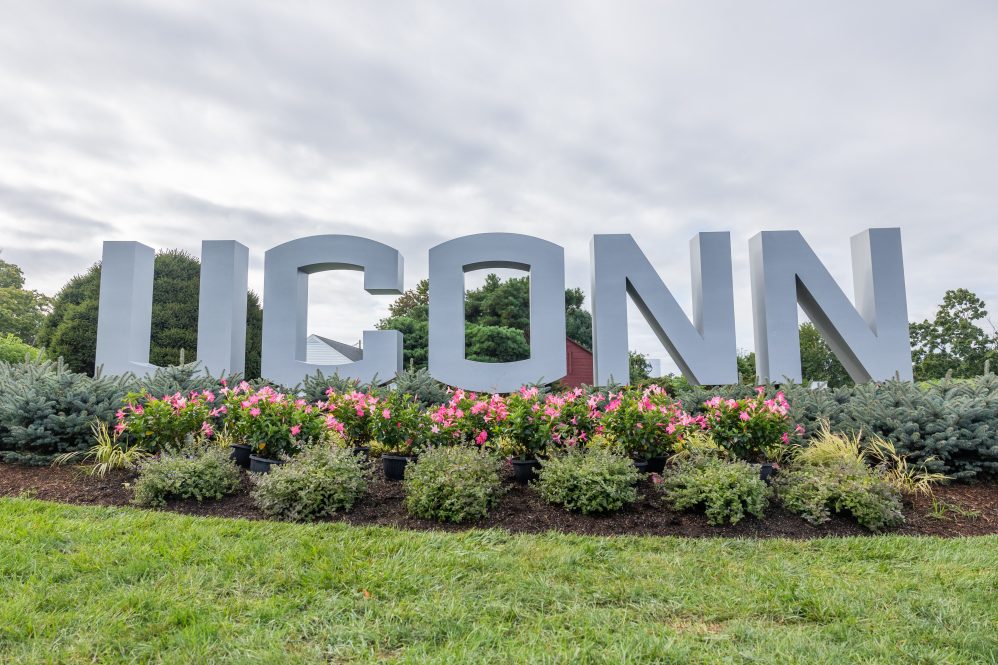The University of Connecticut has been accepted into the Age-Friendly University Global Network—an international consortium of institutions advancing policies and practices that foster healthy aging, intergenerational learning, and lifelong engagement. UConn is now among more than 120 universities globally that are reimagining higher education’s role in an aging society.
“Joining the Age-Friendly University Network is a recognition of UConn’s deep and ongoing commitment to serving older adults through education, research, and community engagement,” says Rosa E. Raudales, Director of Outreach and Engagement and co-lead on the university’s application.
This commitment is evident across UConn’s campuses. The Osher Lifelong Learning Institute (OLLI) at UConn Waterbury offers robust programming for older learners, while UConn Extension programs engage older adults in wellness initiatives and life-long learning. Faculty across a range of disciplines—including medicine, human development and family sciences, speech, language and hearing sciences, social work, molecular and cell biology, Extension, communication, nursing, and gerontology —are driving research and curriculum that address the complexities and opportunities of an aging population.
This work also takes place at nationally recognized centers at UConn Health. The John Dempsey Hospital was recently named an Age-Friendly Health System, and the Center on Aging and Claude D. Pepper Older Americans Independence Center are nationally funded hubs for clinical research, innovation, and care, that promote autonomy and quality of life in later years.
“This application exemplifies UConn’s collective and positive impact on real-life issues when we work with and for the community,” Raudales says.
Leadership in the field of aging extends beyond Connecticut. Dr. George Kuchel, director of the Center on Aging, serves on the National Advisory Council on Aging at the National Institutes of Health, helping shape national aging policy. Professor Laura Donorfio, another co-lead on the application, serves as vice chair of the Academy for Gerontology in Higher Education, part of the Gerontological Society of America. Professor Candi Nwakasi co-founded Black in Gerontology and Geriatrics, an initiative elevating underrepresented voices in the field.
“I am so proud that UConn is now a member of this global network,” says Donofrio. “Not only does this bring visibility to the breadth and depth of our aging education, research, and community engagement, it also allows us to partner with other institutions across the entire age-friendly ecosystem to elevate the needs of older adults to create a more age-inclusive world.”
Fumiko Hoeft, campus dean and chief academic officer of UConn Waterbury, was instrumental in putting in motion the team and the idea to submit UConn’s application to the Age-Friendly University Global Network.
“At UConn Waterbury, we see every day how older adults are eager to learn, share, and lead,” says Hoeft. “OLLI is a powerful example of how age-friendly programs enrich not only the individuals who participate but the entire university community. This is about building a culture that values lifelong contribution at every stage of life.”
The application was a collaborative effort endorsed by Provost and Executive Vice President for Academic Affairs Anne D’Alleva and prepared by a team of faculty and administrators across multiple departments.
Alongside Raudales and Donorfio, key contributors also included UConn Extension Assistant Director Bonnie Burr, assistant professor of human development and family studies Brian Chapman, Director of the OLLI Fiona de Merell, assistant UConn Extension educator Heather Peracchio, Kuchel, core manager of the Pepper Center Lisa Kenyon-Pesce, and assistant to the director of outreach and engagement Merly Downey.
“UConn’s acceptance into the Age-Friendly University Global Network marks another step in its mission to create a campus-and a world-that values contribution, curiosity, and connection at every stage of life,” says D’Alleva. “This recognition reaffirms the University of Connecticut’s unwavering dedication to translating academic pursuits into actionable benefits for our communities, in fulfillment of our land grant mission. It’s a testament to the collective efforts of our faculty, staff, and students in nurturing a culture where education, research, and service intersect to advance societal well-being across the lifespan.”



